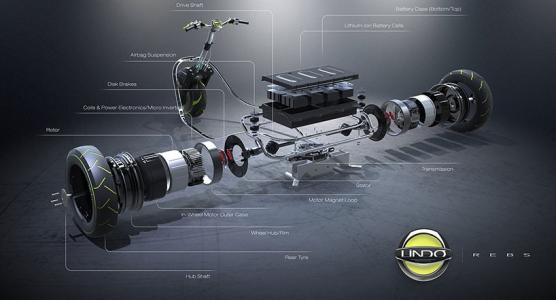Lithium Battery News Analysis
Jun 18, 2019 Pageview:1833
Lithium batteries use Lithium, the third element of the periodic table, as an anode. Their appeal in the latest years has been in the fact that they have high charge density (allows for longer life). When it comes to new technology, developers have focused on the rechargeable battery, which is the lithium-ion or lithium-polymer. If you have a smartphone, chances are it has a lithium battery. Almost anything does today, even some vehicles. We have become increasingly dependent on batteries and their applications.
2019 has been a year of breakthroughs and a year of downfalls for the lithium battery. Here is what’s new.
1. Lithium battery news about new battery technology in 2019
Obviously, one of the first concerns of battery developers is longer lasting batteries. And this year a lot of breakthroughs have been focused on that. The lithium batteries that are used in day to day life tend to have a low energy density, which means they have a short life. Lithium-ion batteries have graphite anon, if you replace it with Li-ion the battery life is longer, that’s the principle from which the researchers at Columbia parted. In April of 2019, researchers at Columbia University developed a nano-coating of boron nitride to stabilize solid electrolytes in lithium metal batteries that would do just that.
However, on another university, Chambers, the researchers seem to actually appreciate the graphite. With lithium-sulfur batteries, the researchers have developed a graphite sponge. Lithium-sulfur batteries supposedly have a higher energy density, almost five times. By adding the sponge, they discovered that the porous quality of it allows for enough soaking of sulfur to increase its performance since it allows the Sulphur to cycle without losses.
Neither of these techniques will be implemented in the market for a long time. This is because they both require new processes that might take a while for the suppliers to adjust to.
On more recent news, Chinese researchers have developed a Lithium-ion battery for cars. The battery charges enough for the car to run 300 km per 10 minutes of charging. They believe this breakthrough will help popularize the use of electric cars.
Since we are worried about the environment, scientists do not only want to elongate the life of lithium batteries but also to better dispose of them. Researchers at the University of California- San Diego have found a method to regenerate the spent lithium cathodes. This process had already been presented. However, they have found a way to use less energy. By using lithium salts, they made a solvent-free liquid where they dissolved cathodes to restore the lithium ions. This didn’t require any extra pressure for the reactors.
In June of 2019, Tesla along with other companies raised money for Europe’s first home-grown gigafactory for lithium-ion battery cells, taking a little bit of the market away from China.
Tesla has also presented a new patent in lithium batteries. It consists of additives for the electrolyte that will increase the performance of a Li-ion battery.
2. Lithium battery news about battery applications
For a long while now, lithium batteries have been developed especially for vehicles and electronic devices. Especially today, when we are constantly looking for clean energies, and electric cars have become crucial to transportation in the future. A lot of the developments in lithium batteries of 2019 have been focused exactly on that. At the very beginning of this year, a group of scientists developed a model that determined the lifetime costs of 9 electricity storage technologies for 12 different applications between 2015 and 2050. They found out that lithium-ion batteries are following on the steps of crystalline silicon solar panels. Lithium batteries will begin to be more widely used and produced because of its multiple applications. The main applications for lithium batteries in 2019 are electronics, power vehicle, electric power usage, industrial use.
In June 2019, the British government announced a third round funding for developing the latest electric vehicle technology of £23 million. Involved in the project there are companies like Jaguar, and Nexeon, which are aided by the University College of London, Birmingham, etc.
Also, world-leading battery brand Tripp Lite has focused on power protection for their SmartPro UPS system. They have developed a new battery that can recharge to 100% in only 1.5 hours (contrary to the usual 24 hours it takes).
One of the biggest advances in battery applications was made by the Hong Kong Polytechnic University. Researchers have developed a flexible textile lithium battery. This battery is much more stable and durable. These are mostly focused on wearable technologies. This discovery could escalate the lithium battery applications up to healthcare, intelligent textiles, IoT (Internet of Things), among others.
3.Lithium battery news about battery explosion
The concern about lithium batteries exploding began with the Samsung scandal. It seems like lithium batteries are particularly sensitive to height. As of April 1, 2019, the FAA counts 254 air/airport incidents involving lithium batteries.
In the attest news about it, a backpack caught fire at West Virginia’s Yeager airport, the reason? Two lithium batteries were attached to a charger. There was also a similar incident in Pamplona, Spain in May 2019. A pure-lithium battery exploded and the situation got a little out of control. Thespecial forces and Tedax had to intervene.
On more positive news, IOS 13 has a new feature for you to safely charge your battery, and that your overall battery life is longer. The feature doesn’t let the phone charge over 80%, ensuring that any energy release won’t cause your battery to explode or be more damaged.
But Apple is not the only company working towards improving their batteries after the Shanghai incident with a Tesla car exploding, Tesla has upgraded its model S and X, reinforcing the thermal management. This is supposed to prevent battery overcharging, and therefore, explosions.
Finally, the National Argonne Laboratory in the United States discovered a covering that would considerably improve the performance and safety of lithium-ion batteries. The product deters adverse chemical reactions between the cathode and the electrolyte. It also stops the cathode from releasing oxygen.
- Prev Article: How to Recycle Lithium Batteries?
- Next Article: How to Charge Lithium-Ion Battery without Charger?
Leave Message
Hottest Categories
-
Hottest Industry News
-
Latest Industry News











